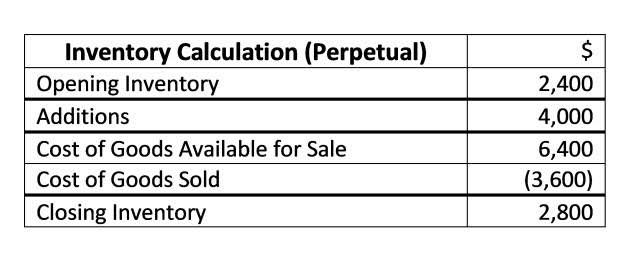Bookkeeping
AI in Payment and Invoice Processing

With AI-driven fraud detection, businesses can proactively flag suspicious invoices, prevent unauthorized transactions, and maintain regulatory compliance with standards like SOX, GDPR, and PCI-DSS. AI can help you extract relevant data from PDFs, scanned images, and other digital formats using OCR technology. It can easily cater to multiple invoice layouts, trade regulations, and currencies. These will come in handy when you are dealing with complex purchase orders and international suppliers.
- AI in invoice processing is truly a powerful weapon that changes how companies operate.
- IDP solutions work methodically, following set rules and patterns while also learning from each document they process.
- With the introduction of AI invoice processing software, businesses can now automate invoice workflows, enhance accuracy, and reduce administrative overhead.
- According to reports, AP automation and AI lower processing costs by 81%, speed up processing times by 73%, and slash human errors by up to 40%.
- Traditionally, invoice processing has been manual and labor-intensive, leading to slow turnaround times, high error rates, and increased operational costs.
Complete Guide to AI in Accounts Payable
Even seemingly high prevision, say 90% accuracy, implies that one out of every ten characters will be extracted incorrectly. For organizations extracting hundreds or thousands of invoices a month, this adds up to a large amount of inaccuracy. Companies will then need to reprocess their invoices manually to identify and remedy mistakes, largely defeating the purpose of automating invoice processing in the first place.

Process invoices automatically
- AI encompasses many technologies, from basic conversational chatbots to sophisticated neural networks modeled after the human mind.
- Provide various resources, such as User manuals, and ongoing support services to solve all problems optimally.
- Machine learning brings in major cost savings by increasing productivity, with a low cost for implementation.
- It’s not just about digitizing documents; it’s about creating a smarter, more efficient workflow that adapts to your needs.
- Another key benefit of AI in invoice processing is enhanced compliance and risk management.
With the introduction of AI invoice processing software, businesses can now automate invoice workflows, enhance accuracy, and reduce administrative overhead. Below is a detailed comparison of traditional invoice processing vs. AI-driven invoice processing and how AI is transforming financial operations. AI invoice processing solutions come with built-in fraud detection and compliance monitoring to prevent financial risks. The software analyzes historical invoice data and spending patterns to detect suspicious Food Truck Accounting transactions, such as fake invoices, unauthorized vendors, or duplicate payments.

Approval

This ensures bills are always paid on time, while maintaining healthy cash reserves. The real value of AI is realized when it can recognize trends and learn from patterns. Accounting automation can manage the small tasks, performed multiple times, for various invoices ai invoice processing and receipts. AI-powered dashboards also integrate seamlessly with key enterprise resource planning (ERP) systems, creating a unified ecosystem for financial management.
- Unlike manual data entry, which can have an error rate of up to 4%, AI reduces errors by 90%, ensuring high accuracy.
- Traditional invoice management, with its inherent challenges, often falls short in meeting modern demands.
- AI-guided invoice processing and payment ensures timely payments and reduces delays, allowing your AP teams to save valuable time for financial planning.
- When choosing Automated Invoicing tools for your business, always consider your specific needs and what your business’s most important goals are.
- Tipalti begins supplier invoice processing with AI-driven optical character recognition (OCR) for invoices.
- AI helps companies to avoid unnecessary costs and maintain more accurate financial records by preventing duplicate payments.
Solutions
- However, only 9% of companies already use AI, and of these, 50% use AI in accounting, as a Bitkom study revealed.
- Unlike manual data entry, which is prone to errors and time-consuming, AI processes data swiftly and accurately.
- This way, small businesses, freelancers, and individuals can save time doing dull accountancy work.
- OCR technology is used in a variety of settings, from digitizing physical documents in libraries to converting PDFs into editable Word files.
- You can use AI for invoice processing through Large Language Models (LLMs), Microsoft’s AI Builder, or Intelligent Document Processing (IDP) solutions.
- AI-powered invoice processing significantly helps your organization by optimizing invoice capture, data extraction, and payment processing for quicker approvals and vendor payments.
Metrics might include processing times, cost savings, and accuracy improvement. This may involve training systems to recognize vendor patterns, invoice formats, approval workflows, etc. Continuously monitor the AI’s performance and fine-tune algorithms as needed.
Accounts Payable

Finally, AI delivers real-time analytics on invoice processing speed, bottlenecks, exception rates, and approval delays. These insights help finance leaders continuously improve workflows, manage cash flow more effectively, and make data-driven decisions. Manual reporting, on the other hand, required exporting data from multiple systems and compiling spreadsheets—often resulting in unearned revenue outdated, siloed, or incomplete reporting. Automated invoice processing saves time and reduces errors by using software to automate repetitive tasks.
